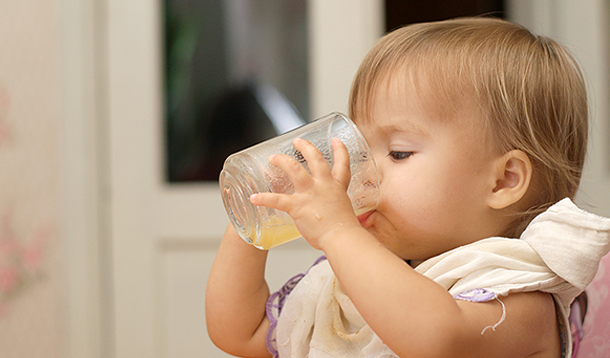
The American Academy of Pediatrics (AAP) issued a formal statement late last week: It is optimal to completely avoid the use of juice in infants before one year of age, and children younger than six months old only be given human breast milk or prepared infant formula.
In other words: juice isn't as healthy as we previously thought - and it offers no nutritional benefits over whole fruit.
Some of the main reasons cited in the update is that juice is similar in sugar and calories to soda, and therefore a contributing factor to dental decay in young children and obesity. They also conclude that:
The full journal also suggests that juice ingested by children may cause energy imbalance; it may also have pharmacological considerations and implications, and they suggest further studies on potential drug interactions would be wise. Grapefruit juice, especially, should be avoided by any child taking certain prescribed medications and over the counter drugs like ibuprofen.
Instead of fruit juice, the pediatricians say, children should be offered whole fruit to meet their recommended daily intake. Consumption of fiber and taking more time to consume the same amount of kilocalories has several benefits.
The New York Times says, "Four ounces of apple juice has no fiber, 60 calories and 13 grams of sugar. By comparison, a half cup of apple slices has 1.5 grams of fiber, 30 calories and 5.5 grams of sugar. The fiber in a piece of fruit also increases fullness."
Fruit juice should be reserved for special occasions when offered at all. And these new guidelines do not apply to fruit drinks, which contain less than 100 percent juice and have added sweeteners (those are categorized as sugar-sweetened beverages). Along with soda, sports drinks and energy drinks, frequent consumption of sugar-sweetened beverages is associated with poor health outcomes, according to the CDC.
Previously, the pediatrician group merely advised against giving fruit juice to children under 6 months of age, and this is the first time the guidelines have been updated on fruit juice in 16 years.